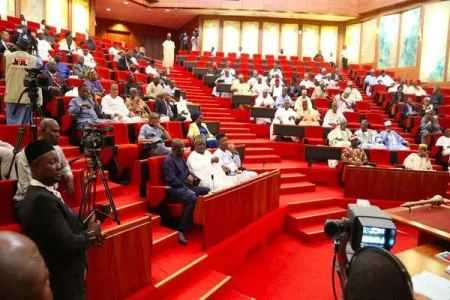
The Nigerian Senate is set to pass tax reform bills that will exempt citizens earning below N1 million annually from income tax. The proposed reforms aim to address the inequities in VAT revenue sharing and provide tax relief for low-income Nigerians, fostering a fairer tax system.
The Nigerian Senate is set to pass the Tax Reform Bills, which propose to exempt individuals earning below N1 million annually from paying personal income tax. This shift follows discussions between lawmakers and government experts about the impact of the reforms.
The bills aim to modernize Nigeria's tax system, making it fairer and more efficient. One of the primary objectives is to ensure that lower-income Nigerians are not burdened by taxes, with the reform focusing on taxing higher incomes. Under the proposed structure, individuals earning less than N1 million will not be required to pay personal income tax. Furthermore, the reform will eliminate the minimum tax on companies that report losses, providing relief to struggling businesses.
The bills also seek to amend the distribution of Value Added Tax (VAT). Currently, the VAT system disproportionately favors states like Lagos, which hosts the majority of corporate offices. The new structure will aim for a more balanced distribution based on consumption in different states, benefiting regions that contribute to national revenue but are underrepresented in the current sharing formula.
Tax experts, led by Taiwo Oyedele, Chairman of the Presidential Committee on Fiscal Policy and Tax Reforms, have stressed that these changes are designed to streamline tax administration and improve collection efficiency. The reforms, which include the Nigerian Tax Bill, the Tax Administration Bill, and other related measures, are part of a broader strategy by President Bola Tinubu’s government to overhaul Nigeria’s fiscal policy for sustainable economic growth.




